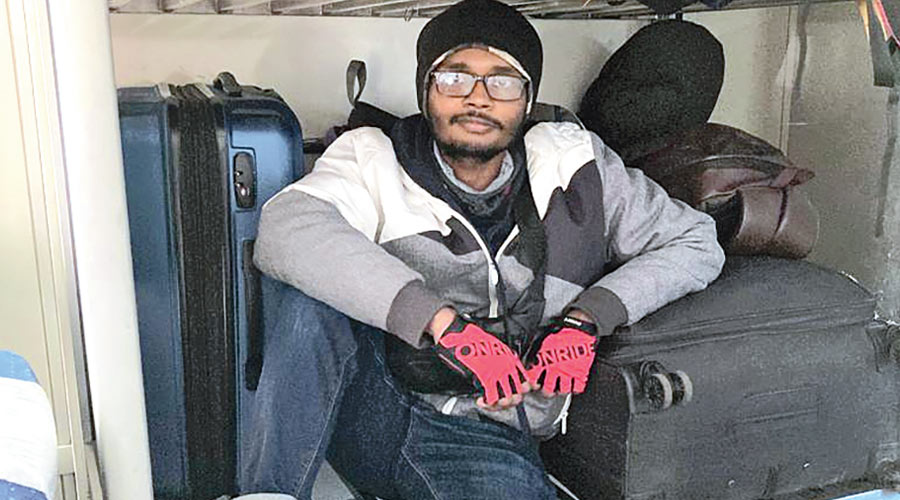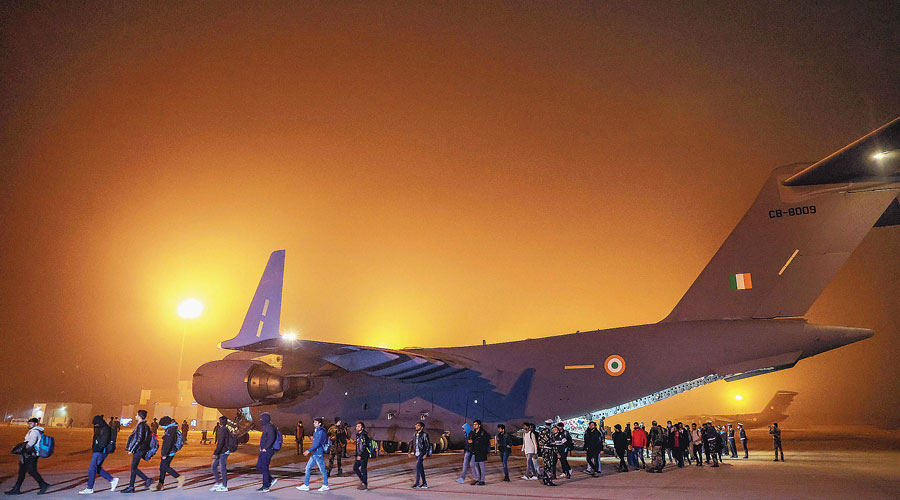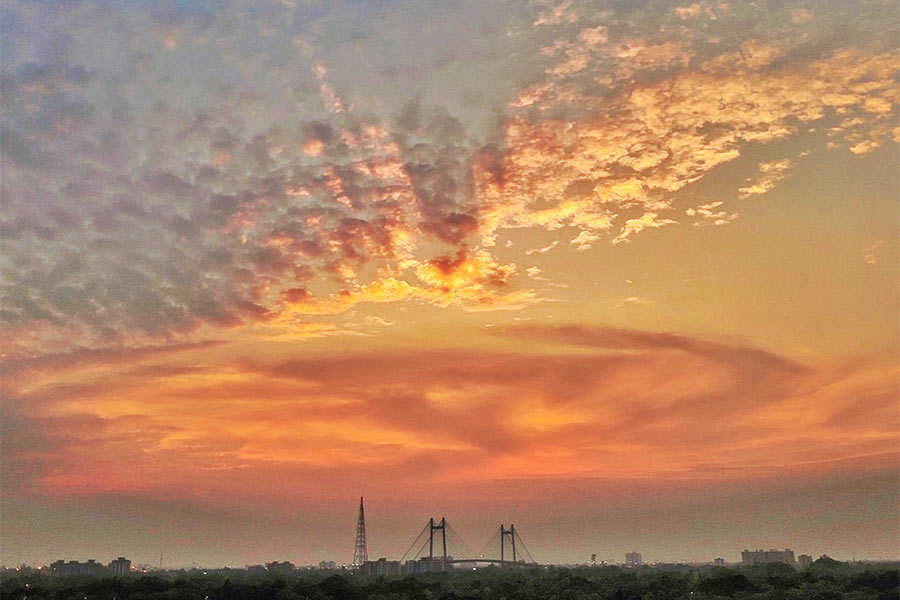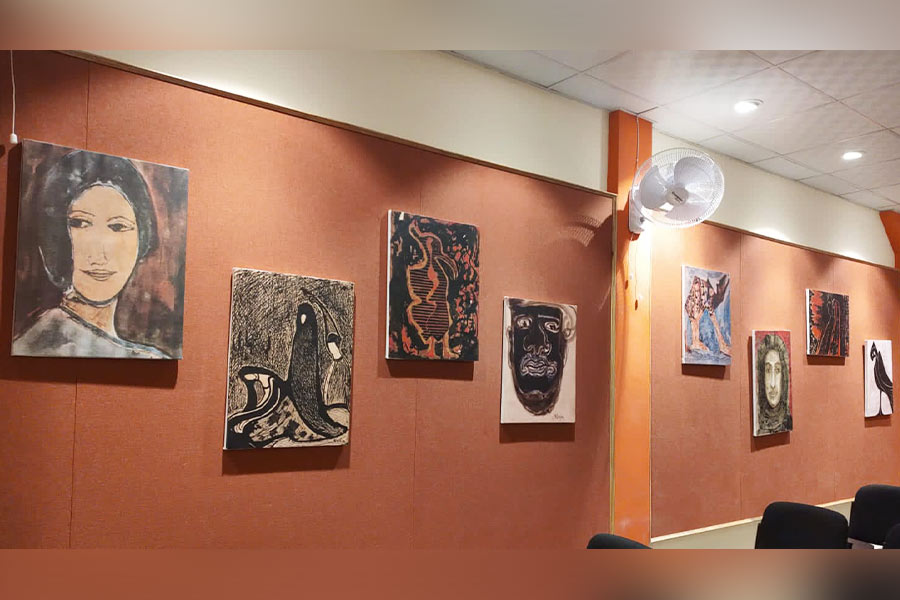Several Indian students who made it across the Ukrainian border on their own complained that they got little assistance when they needed it the most.
From different Ukrainian cities, the journey to the relative safety of a neighbouring country was a mixed bag of chance, guts and improvisation.
There were boots on the ground. Tanks rolled past some. Many saw charred remains of vehicles on the road. Most of the people had to arrange for their transportation to the border.
“Evacuation is rescuing someone from a war zone. The government never evacuated us. It was limited to issuing advisories,” a student from Odessa in south Ukraine is heard saying after reaching Romania.
The clip has gone viral on social media. Many social media users have called out the government and its PR machinery for labelling as evacuation the arrangement of connecting flights.
Based on conversations with several such Indians, these are some of the points that came up.
No one took calls
Joydeep Dutta, a fourth-year MBBS student at Kiev Medical University, made three calls to a helpline of the Indian embassy in Kiev on February 24, the first day of Russian bombardment. None was answered.
On February 26, he called up the embassy again, after a bombing on the government quarters in Darnytsia, 2km from his apartment. The call was answered.
“We were a group of eight living in the apartment, all Indians. We sought shelter at the embassy. But we were told that the embassy already had more students than it could accommodate. We were asked to stay put,” said Dutta.
Swagata Sadhukhan, a medical student at the same institute, had made multiple calls to the embassy between February 25 and 27. She either found the user busy or no one took the call. “We checked the embassy’s Facebook page and Twitter handle for updates,” said Swagata, who spoke from a shelter in Radauti, Romania.
She made it to the border on a bus hired by students.
In the dark
Several students said there was confusion on how to reach the border.
“Every time I tried calling those numbers (embassy helplines), they would say they were only volunteers and they could help only after we crossed the border,” said Rohan Azad Laskar from Dhulagarh in Howrah district, who is a sixth-year student of Kyiv Medical University and who fled from Ukraine through the Hungary border.
“The embassy told us just to reach Lviv, but there was no direction on how to reach. The day we decided to go, a few minutes before leaving we got a notification that free trains were available. But the problem was we did not have a ticket,” said Sambit Das, a fourth-year student of Kyiv Medical University who is from Hooghly.
An occasional update from the embassy mentioned checkpoints — at the borders of countries like Poland, Romania and Hungary — where “teams” would be deputed to make the routes “operational”.
But the same advisories also said the students had to reach there “by their own arrangements”.
“Print out Indian flag and paste prominently on buses while travelling,” said one such update on February 25.
A group left Kharkiv on February 27, when the government advice was to stay put. “We actually went against the advice, because we did not feel safe,” said a member of the group, who requested anonymity. The member was now in Romania, waiting for a flight back home.
Wrong information
A second-year student of Kyiv Medical University who is from Pashcim Medinipur and was flown back to India from Budapest on Wednesday said she and her friends did not receive guidance from the embassy and that often the information they gave was “wrong.”
“We started from our hostel in Kyiv for the Vokzalna station where we were told that there would be buses from the embassy that would take us to Ozora. But when we actually reached there, there were no buses waiting for us. We had to take a train to Lviv first and then go to Ozora from there,” she said.
What others faced
Dutta from Kiev said Indians, Pakistanis and Nigerians made up the bulk of foreigners headed to the borders. “Students from the US, UK, Israel and Germany were mostly gone before February 24, the first day of bombardment,” he said.
Spectacle
Many people who have flown home or were waiting to board a plane said the reception they faced upon reaching another country was fabulous.
But a more active Indian role during their passage through war-ravaged cities of Ukraine till the borders would have been more useful, they said.
“Actually they (the Indian government) did a lot after we reached Poland. But till Poland, we were left to fend for ourselves. Every time we were stopped at a checkpost, I bit my nails off,” said a 22-year-old who travelled from Kiev to Lviv and then crossed the Poland border.







